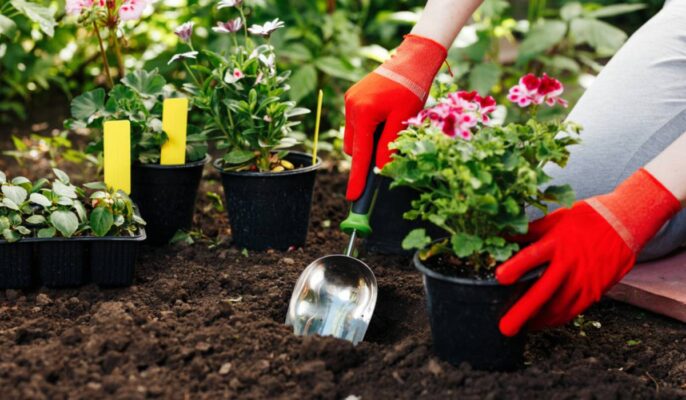Gardening is more than just a pastime; it’s a rewarding blend of art, science, and patience. Whether you’re a seasoned horticulturist or just beginning to dip your toes into the soil, there’s always something new to learn about nurturing plants and creating a lush, vibrant garden. Here’s a fresh look at some essential gardening tips that will help you cultivate a thriving green space, no matter the size or location of your gardening tips.
1. Understand Your Soil
Good gardening starts with understanding your soil. Soil health is the foundation of a productive garden. Conduct a soil test to check for pH levels and nutrient deficiencies. Knowing whether your soil is sandy, clayey, or loamy helps in selecting the right plants and the appropriate amendments. Adding organic matter, like compost, can enhance soil structure, fertility, and drainage, providing a better environment for plant roots.
2. Choose the Right Plants
Selecting plants suited to your local climate and soil conditions is crucial. Research native plants and those that are adapted to your region. They are generally more resistant to pests and diseases and require less water and maintenance. For a diverse garden, include a mix of perennials, annuals, shrubs, and trees to provide year-round interest and support local wildlife.
3. Master the Art of Watering
Watering is both an art and a science. Overwatering can be as harmful as underwatering. The key is to water deeply and less frequently to encourage deep root growth. Early morning is the best time to water, reducing evaporation and fungal diseases. Use mulch to retain soil moisture and minimize weeds, and consider drip irrigation systems for more precise watering.
4. Plan for Pollinators
Pollinators like bees, butterflies, and hummingbirds are vital for a thriving garden. Design your garden to attract these beneficial insects by planting a variety of flowers with different bloom times. Choose native flowering plants, provide habitats like bee hotels, and avoid using pesticides that can harm pollinators.
5. Incorporate Companion Planting
Companion planting involves growing certain plants together to benefit one another. For instance, planting marigolds among your vegetables can deter pests, while basil can enhance the flavor of tomatoes. Understanding which plants work well together can lead to healthier crops and more efficient use of space.
6. Rotate Your Crops
Crop rotation helps prevent soil depletion and reduces the risk of plant diseases and pests. By changing the location of your crops each year, you can ensure that soil nutrients are replenished and that pests and diseases do not become established. Plan your garden layout in advance to facilitate effective crop rotation.
7. Embrace Organic Gardening
Organic gardening practices focus on building healthy soil and reducing reliance on synthetic chemicals. Use organic fertilizers and pest control methods, such as neem oil or insecticidal soap. Incorporate practices like composting and using natural predators to manage pests. This approach not only benefits your plants but also contributes to a healthier ecosystem.
8. Prune Wisely
Pruning is essential for maintaining the health and shape of your plants. Regularly remove dead or diseased branches, and thin out crowded areas to improve air circulation. For fruit trees, proper pruning can increase yield and improve fruit quality. Always use clean, sharp tools to make precise cuts and avoid damaging the plant.
9. Keep a Gardening Journal
Documenting your gardening activities can be incredibly helpful. Keep track of planting dates, growth patterns, pest issues, and weather conditions. This journal can serve as a valuable reference for planning future gardens and troubleshooting problems. Over time, you’ll develop a deeper understanding of what works best in your garden.
10. Enjoy the Process
Gardening is a journey, not just a destination. Take time to enjoy the process of growing your garden. Observe the changes in your plants, appreciate the small victories, and don’t be discouraged by setbacks. Gardening teaches patience and provides a sense of accomplishment as you watch your efforts blossom into a beautiful, thriving space.
